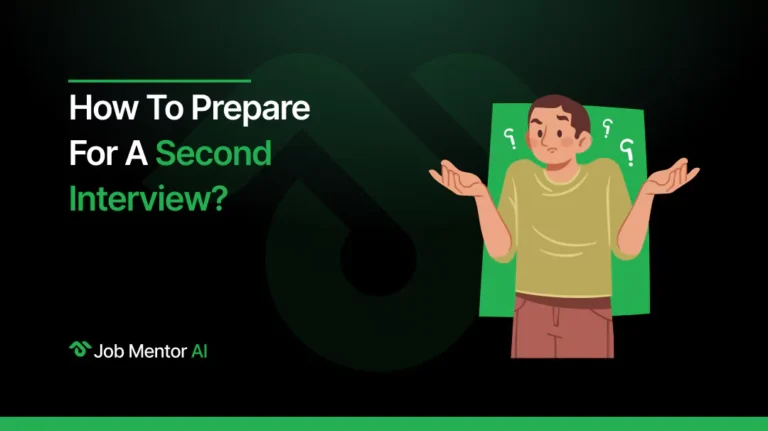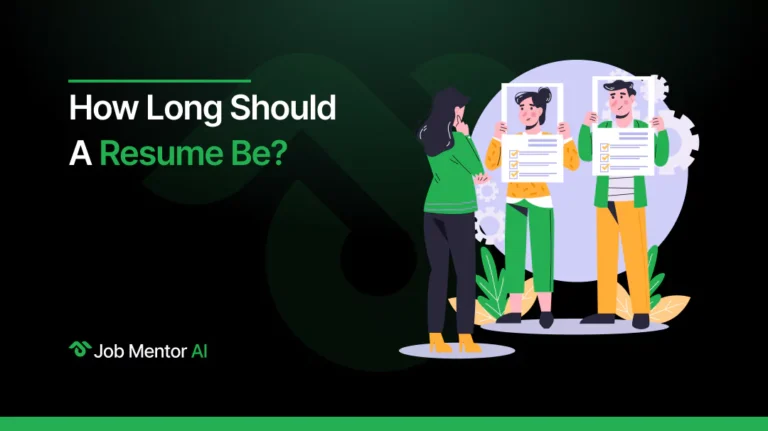Feeling nervous before a group interview? Don’t worry—you’re not alone. Many people find group interviews tricky because they need to shine while others are also being evaluated. But with some good preparation and the right attitude, you can make a great impression. This guide will help you understand what group interviews are and give you 30 common questions you might face, with ideas on how to answer them confidently.
What Is a Group Interview?
A group interview is when a company meets with several candidates at the same time. In some cases, there may also be more than one interviewer. Employers use this type of interview to see how you communicate, work with others, and handle pressure. You might find group interviews in jobs like retail, customer service, sales, and hospitality, anywhere teamwork matters.
30 Group Interview Questions with Sample Answers
- Can you briefly introduce yourself to the group?
- Why do you want to work here?
- What strengths would you bring to this team?
- How do you handle conflict in a group?
- Describe a time you worked well in a team.
- What role do you usually take in a team?
- How do you handle criticism from peers?
- What motivates you to do well?
- What does teamwork mean to you?
- Tell us about a group project you enjoyed.
- What motivates you to work hard?
- What are your strengths?
- What are your weaknesses?
- How do you handle criticism?
- Tell me about a time you failed and what you learned.
- Describe a difficult decision you made and how you handled it.
- How do you manage your time when working on multiple tasks?
- How do you handle stress or pressure?
- Why did you choose this field if study?
- What do you hope to learn from this internship?
- Describe a situation where you worked in a team.
- How do you set and achieve goals?
- Tell me about a time you showed leadership.
- What do you do if you don’t know how to do a task?
- How do you stay organised?
- How do you contribute to a positive team environment?
- Have you ever had to take over someone else’s responsibilities?
- What do you think makes someone a good team player?
- Do you prefer working in a team or alone?
- What would you do if someone in the group dominated every discussion?
1. Can you briefly introduce yourself to the group?
Why do they ask this: To see how you present yourself.
Example:
“Hi, I’m Alex. I’ve just finished my Marketing degree and have two years of part-time experience in customer service. I love helping people and learning new things. I’m excited to join a team like yours where I can grow and contribute fresh ideas.”
2. Why do you want to work here?
Why do they ask this: To see if you’ve researched the company.
Example:
“I like this company because of its focus on innovation and strong values. I read about your community projects and customer awards. I’d love to be part of a team that makes a difference.”
3. What strengths would you bring to this team?
Why do they ask this: To understand what you offer.
Example:
“I’m good at solving problems and staying calm under pressure. In my last job, I improved the returns process, which saved time and made customers happier.”
4. How do you handle conflict in a group?
Why do they ask this: To check how you manage disagreements.
Example:
“If conflict happens, I make sure everyone gets to share their view. Once in a project, we had different ideas, so I suggested combining them. It worked well and helped us finish the task on time.”
5. Describe a time you worked well in a team.
Why do they ask this: To see your teamwork skills.
Example:
“In my internship, I worked on a new product launch. Each of us had tasks based on what we were good at. We stayed in touch regularly, and the campaign beat our goals by 30%.”
6. What role do you usually take in a team?
Why do they ask this: To know your natural working style.
Example:
“I usually organise things. I like setting deadlines and making sure everyone knows what they need to do. This keeps the team on track.”
7. How do you handle criticism from peers?
Why do they ask this: To see how you take feedback.
Example:
“I see feedback as a way to get better. Once, a teammate told me I was rushing decisions. I slowed down, asked for more opinions, and it really improved our work.”
8. What motivates you to do well?
Why do they ask this: To understand what drives you.
Example:
“I’m motivated by progress. When I hit small goals, it makes me want to work harder and reach the next one. It keeps me focused and positive.”
9. What does teamwork mean to you?
Why do they ask this: To learn about your values.
Example:
“Teamwork means trust, respect, and helping each other. Everyone should feel safe sharing ideas. When the whole team works together, the results are always better.”
10. Tell us about a group project you enjoyed.
Why do they ask this: To see your experience with teams.
Example:
“I really liked working on a green energy campaign at school. Each person brought different ideas, and we all supported each other. It showed me how teamwork makes projects stronger.”

11. What motivates you to work hard?
Why do they ask this: To understand your drive.
Sample Answer:
“I feel motivated when I learn new things and see my work helping others. I also enjoy setting goals and reaching them. It makes me feel proud and confident.”
12. What are your strengths?
Why do they ask this: To know what you do best.
Sample Answer:
“My strengths are creativity, teamwork, and problem-solving. I enjoy finding simple solutions to difficult problems and helping my team do well.”
13. What are your weaknesses?
Why do they ask this: To check your self-awareness.
Sample Answer:
“Sometimes I focus too much on small details, which slows me down. But I’m learning to manage time better and focus on what matters most.”
14. How do you handle criticism?
Why do they ask this: To test how you accept feedback.
Sample Answer:
“I listen carefully to the feedback, think about it, and try to improve. I see criticism as a chance to learn and do better next time.”
15. Tell me about a time you failed and what you learned.
Why do they ask this To see if you learn from mistakes.
Sample Answer:
“I once missed an assignment deadline because I didn’t plan well. I learned the importance of time management and now make to-do lists to stay organised.”
16. Describe a difficult decision you made and how you handled it.
Why do they ask this To know your decision-making skills.
Sample Answer:
“I had to choose between two projects with tight deadlines. I discussed with my team and decided to focus on the more important one first. It taught me to set priorities.”
17. How do you manage your time when working on multiple tasks?
Why do they ask this To see your organizational skills.
Sample Answer:
“I list tasks in order of importance and set deadlines for each. This helps me stay focused and finish everything on time.”
18. How do you handle stress or pressure?
Why do they ask this: To check your stress-handling ability.
Sample Answer:
“I stay calm, take deep breaths, and break big tasks into small steps. This makes the work feel easier and less stressful.”
19. Why did you choose this field of study?
Why do they ask this To understand your interest.
Sample Answer:
“I enjoy working with computers and solving problems, so I chose this field. I want to use technology to help businesses grow online.”
20. What do you hope to learn from this internship?
Why do they ask this To know your learning goals.
Sample Answer:
“I want to learn how SEO works in real projects, improve my communication skills, and understand how companies manage their websites.”

21. Describe a situation where you worked in a team.
Why do they ask this To see your teamwork skills.
Sample Answer:
“In college, I worked with a team to design a website. We shared tasks, helped each other, and completed the project successfully.”
22. How do you set and achieve goals?
Why do they ask this: To check your goal-setting habit.
Sample Answer:
“I set clear, small goals and plan steps to reach them. I also check my progress often and adjust my plan if needed.”
23. Tell me about a time you showed leadership.
Why do they ask this: To see your leadership skills.
Sample Answer:
“In a class project, I organised tasks, guided the team, and made sure everyone was involved. The project went well, and we got good feedback.”
24. What do you do if you don’t know how to do a task?
Why do they ask this: To see how you handle uncertainty.
Sample Answer:
“I ask for help from my seniors or research online to learn. I make sure to understand it properly before starting the task.”
25. How do you stay organized?
Why do they ask this: To check your time management and organisation.
Sample Answer:
“I use a diary or a to-do list to plan my day. I also keep my files and documents properly arranged so I can find them easily.”
26. How do you contribute to a positive team environment?
Sample Answer:
“I try to stay friendly and respectful with everyone. I listen to others’ ideas, support my teammates when they need help, and celebrate even small successes. I believe when everyone is happy and comfortable, work becomes easier and better.”
27. Have you ever had to take over someone else’s responsibilities?
Sample Answer:
“Yes, once during a group project, one of our members got sick right before the deadline. I took some of their tasks along with mine to make sure we finished everything on time. It was a little challenging, but we worked together and made it happen.”

28. What do you think makes someone a good team player?
Sample Answer:
“I think a good team player listens to others, shares their own ideas clearly, and helps when needed. They respect everyone’s opinions and care about the team’s success, not just their own work.”
29. Do you prefer working in a team or alone?
Sample Answer:
“I’m comfortable with both. When I work alone, I can focus better, but in a team, I enjoy learning from others and sharing ideas. I think a mix of both is good, depending on the task.”
30. What would you do if someone in the group dominated every discussion?
Sample Answer:
“I’d politely suggest giving others a chance to speak too, so everyone can share their ideas. It’s important that all voices are heard for the best teamwork.”
Curveball Interview Questions with Sample Answers
You know how some interviews throw in weird questions that catch you off guard? Those are called curveball questions. They’re not your usual “Tell me about yourself” kind of thing. Instead, they want to see how you think when stuff feels a bit random or tricky.
Why do they ask these? Because it shows who you really are, how creative you are, how you handle surprises, and sometimes just what kind of person you are beyond your resume.
Here are 8 of those curveball questions, with answers.
What are Curveball Interview Questions?
Curveball interview questions are those unexpected or kinda weird questions that pop up during an interview when you least expect them. You know, when you think they’re gonna ask about your skills or your experience and suddenly they hit you with something like, “If you were an animal, what would you be?” or “What would you do if you won the lottery tomorrow?”
8 Curveball Interview Questions with Sample Answers
31. If you were a superhero, what would your special power be and why?
32. Describe yourself in three words but don’t say “hardworking” or “passionate.”
33. If you could have dinner with any historical figure, who would it be and why?
34. What’s something people often misunderstand about you?
35. If you were an animal at work, which animal would you be and why?
36. Tell me about a time you broke the rules (in a good way) to get something done.
37. If you won the lottery tomorrow, what would you do first?
38. What’s a skill you don’t have but wish you did?
31. If you were a superhero, what would your special power be and why?
Sample Answer:
If I were a superhero, I think I’d want to stop time. Sometimes life feels like it’s going a million miles per hour, and I just wanna hit pause and catch my breath. Plus, it’d be cool to help people without anyone noticing.
32. Describe yourself in three words but don’t say “hardworking” or “passionate.”
Sample Answer:
Hmm… I’d say curious, dependable, and flexible. Curious because I love learning new stuff. Dependable, since people can trust me to get things done. And flexible ‘cause I’m good at rolling with changes.
33. If you could have dinner with any historical figure, who would it be and why?
Sample Answer:
Probably Martin Luther King Jr. I think he was super brave and had a big vision for a better world. I’d want to hear what kept him going when things got really tough.
34. What’s something people often misunderstand about you?
Sample Answer:
People sometimes think I’m shy or quiet at first. But really, I’m just watching and thinking before I jump in. Once I get comfy, I open up a lot more.
35. If you were an animal at work, which animal would you be and why?
Sample Answer:
I’d say a dolphin. They’re smart, work well with others, but also know how to do their own thing. That’s how I like to work as a team player, but also independently.
36. Tell me about a time you broke the rules (in a good way) to get something done.

Sample Answer:
At my last job, approvals took forever and slowed us down. So, I skipped the usual steps and talked straight to the person who could say yes. It got things moving faster, and the project finished on time. Sometimes you gotta bend the rules to get stuff done.
37. If you won the lottery tomorrow, what would you do first?
Sample Answer:
First thing? Help out my family, pay off their bills, and make sure they’re okay. After that, I’d probably travel or try learning something new. Having the freedom to do what you want is the best part.
38. What’s a skill you don’t have but wish you did?
Sample Answer:
I wish I knew how to cook really well. I like food, but I’ve never put in the effort to get good at making it. Cooking seems like a cool way to chill and hang out with people.
Icebreaker Interview Questions with Sample Answers
You know when an interview starts and everything feels kinda awkward or tense? Like you’re sitting there wondering what they’ll ask first? That’s where icebreaker questions come in.
These are just simple, friendly questions meant to loosen things up a bit. They’re not there to test if you know coding or SEO or anything deep like that. They’re more like, “Hey, what do you like to do in your free time?” or “What’s your favourite book?” stuff like that. It gives both you and the interviewer a chance to smile, relax, and talk like normal humans before diving into the serious job questions.
Honestly, sometimes these questions help you get into the flow. Otherwise, you can feel so stiff right from the beginning. So yeah, icebreakers are like little warm-up questions to make the whole thing less scary.
8 Icebreaker Interview Questions
- How do you usually spend your weekends?
- What’s something about you that most people don’t know?
- Got a favourite movie or book?
- What’s your go-to coffee order?
- If you could travel anywhere right now, where would you go?
- Are you more of a morning person or a night owl?
- How do you like to relax after a busy day?
- What’s a skill you wish you had?
39. How do you usually spend your weekends?
Sample Answer:
Uh, weekends? Mostly just doing whatever feels chill. Sometimes I hang out with friends or binge-watch some shows. Other times, I just crash at home, catch up on sleep, maybe scroll on my phone way too much. If I’m feeling motivated, I might go for a walk or grab some food outside. Nothing super planned.
40. What’s something about you that most people don’t know?
Sample Answer:
People don’t really know I like baking. I mean, I’m not a pro or anything, but sometimes I get this urge to bake cookies or brownies. It’s kinda relaxing. Plus, my family loves it. So that’s a bonus.
41. Got a favorite movie or book?
Sample Answer:
Favorite movie? Hmmm, probably Forrest Gump. I know it’s a bit old-school, but it’s just one of those movies I can watch over and over. It’s funny, sad, and kinda real. Makes me think life’s messy but okay.
42. What’s your go-to coffee order?
Sample Answer:
I usually just do black coffee, simple. Sometimes a latte if I’m feeling fancy or it’s cold outside. But mostly just plain old coffee, no sugar, no cream.
43. If you could travel anywhere right now, where would you go?
Sample Answer:
Italy, for sure. The food looks insane, and I wanna see those old cities and stuff. I don’t really care about big tours, just wanna wander and eat good pizza.
44. Are you more of a morning person or a night owl?
Sample Answer:
I guess I’m kinda a morning person? Like, I hate rushing in the morning, so I try to wake up early. But I’m not really a “morning person” who’s all chipper and ready to go. I’m still half asleep lol. At night, I get distracted by YouTube or TikTok, so yeah, a bit of both maybe.
45. How do you like to relax after a busy day?
Sample Answer:
After work, I just wanna chill. Usually on my couch with my phone or watching some Netflix. If I’m feeling restless, I might go for a run, but honestly, most days couch wins.
46. What’s a skill you wish you had?
Sample Answer:
Speaking another language is for sure. I tried learning Spanish but got stuck pretty fast. It would be cool to actually talk to people without messing up all the time.

Creative Interview Questions with Sample Answers
Creative Interview questions are those weird, unexpected ones they throw at you in interviews to see how you think outside the box. You can’t prepare for them like technical stuff. They want to see if you can stay calm, think differently, or solve problems in fun ways. Honestly, these questions aren’t about right or wrong answers; they care more about how you think.
8 Creative Interview Questions with Sample Answers
- If you could invent any product to make life easier, what would it be?
- How would you sell ice to an Eskimo?
- If you had to design a new holiday, what would it be?
- What would you do if you woke up tomorrow and found out you could read minds?
- How would you explain social media to someone from the 1800s?
- If you could swap lives with any fictional character, who would it be?
- What’s something weird or unusual that you truly enjoy?
- If you could combine two animals to create a new one, what would you pick?
47. If you could invent any product to make life easier, what would it be?
Sample Answer:
Hmm… I’d invent a “universal charger” that works for all gadgets, laptops, phones, cameras, everything. I hate carrying ten different chargers when I travel. It’d save space, time, and sanity. Plus, think of how much less e-waste the world would have.
48. How would you sell ice to an Eskimo?
Sample Answer:
Honestly, I wouldn’t try to sell ice just as “ice”; they’ve got plenty. But maybe I’d package it differently, like luxury-shaped ice cubes or flavoured ice for special occasions. You know… make it about experience, not the ice itself. People buy feelings, not just products.
49. If you had to design a new holiday, what would it be?
Sample Answer:
Oh wow, good one. I’d make “Tech-Free Day” a whole public holiday where nobody is allowed to use phones or computers. Everyone has to talk, go outside, read real books, cook, whatever. Kinda old-school but good for the soul, you know?
50. What would you do if you woke up tomorrow and found out you could read minds?
Sample Answer:
I’d probably freak out at first! But after that I’d use it carefully. Maybe to help people who can’t express what they feel, like kids, or elderly folks with trouble communicating. But I’d keep away from reading friends’ or strangers’ minds that feel like trouble.
51. How would you explain social media to someone from the 1800s?
Sample Answer:
Hmm… I’d say, “Imagine a huge town square where everyone stands and shouts out their thoughts, jokes, and news, except this town square covers the whole world. And you can ‘follow’ people you like to hear more from, and ‘ignore’ the ones you don’t.”
52. If you could swap lives with any fictional character, who would it be?
Sample Answer:
Probably Hermione from Harry Potter. She’s smart, brave, and gets to do magic and let’s be honest, having a wand would make life sooo much easier. Plus, Hogwarts is way cooler than any office.
53. What’s something weird or unusual that you truly enjoy?
Sample Answer:
I actually like organising messy shelves. It feels weirdly satisfying to turn chaos into order. Like when everything’s lined up perfectly, it feels peaceful. My friends tease me about it, but hey… everyone’s got their thing, right?
54. If you could combine two animals to create a new one, what would you pick?
Sample Answer:
Maybe an eagle and a cat. So you’d have this super chill animal that can fly but also loves naps and being petted. Imagine you’d never lose your pet because it could just fly home to you!
How to Prepare to Answer Group Interview Questions?
Here are a few simple tips to help you feel ready:
- Prepare a short, friendly way to introduce yourself.
- Be familiar with Prescreening Interview Questions.
- Focus on clear, respectful communication.
- Think of stories or examples that show your teamwork skills.
- Be confident, but also show you’re a good listener.
- Dress neatly and smile it makes a big difference.
Table of Contents
Frequently Asked Questions
What are Creative Interview Questions?
Creative interview questions are designed to test how you think outside the box. They’re not about right or wrong answers but about how you approach unusual situations, problem-solving, and original thinking.
- What would you do if you woke up tomorrow and found out you could read minds?
- How would you explain social media to someone from the 1800s?
- If you could swap lives with any fictional character, who would it be?
- What’s something weird or unusual that you truly enjoy?
- If you could combine two animals to create a new one, what would you pick?
What are Icebreaker Interview Questions?
Icebreaker questions help start the interview on a friendly note. They make both the interviewer and the candidate feel relaxed before moving to serious or technical questions.
- What do you like to do on weekends?
- What’s your favourite book or movie?
- Are you a morning person or a night owl?
- If you could travel anywhere right now, where would it be?
- What’s a hidden talent or hobby you have?
What are Curveball Interview Questions?
Curveball questions are unexpected and tricky. They are meant to catch you off guard and see how you think quickly, stay calm, and respond when surprised.
- If you were a kitchen appliance, which one would you be and why?
- How many tennis balls can fit into a school bus?
- Sell me this pen right now.
- If aliens landed tomorrow, what would you say to them?
- What would you do if you found a penguin in the office freezer?
How to prepare for a group interview?
Research the company, understand the role, and practice common interview questions with AI Mock Interview Practice. This helps you refine your answers, build confidence, and improve your communication and teamwork skills.
Is a group interview easy?
Group interviews can be a bit challenging since you’re being assessed alongside other candidates. But with preparation and confidence, you can stand out. Being a good listener, showing leadership, and contributing positively to group tasks can leave a strong impression.
What to wear to a group interview?
Dress in professional or smart casual attire, depending on the company culture. When in doubt, it’s always safer to be slightly overdressed than underdressed.
How long is a group interview?
Group interviews typically last between 30 minutes to 1.5 hours. The exact duration depends on the number of candidates and the types of tasks or activities planned.









